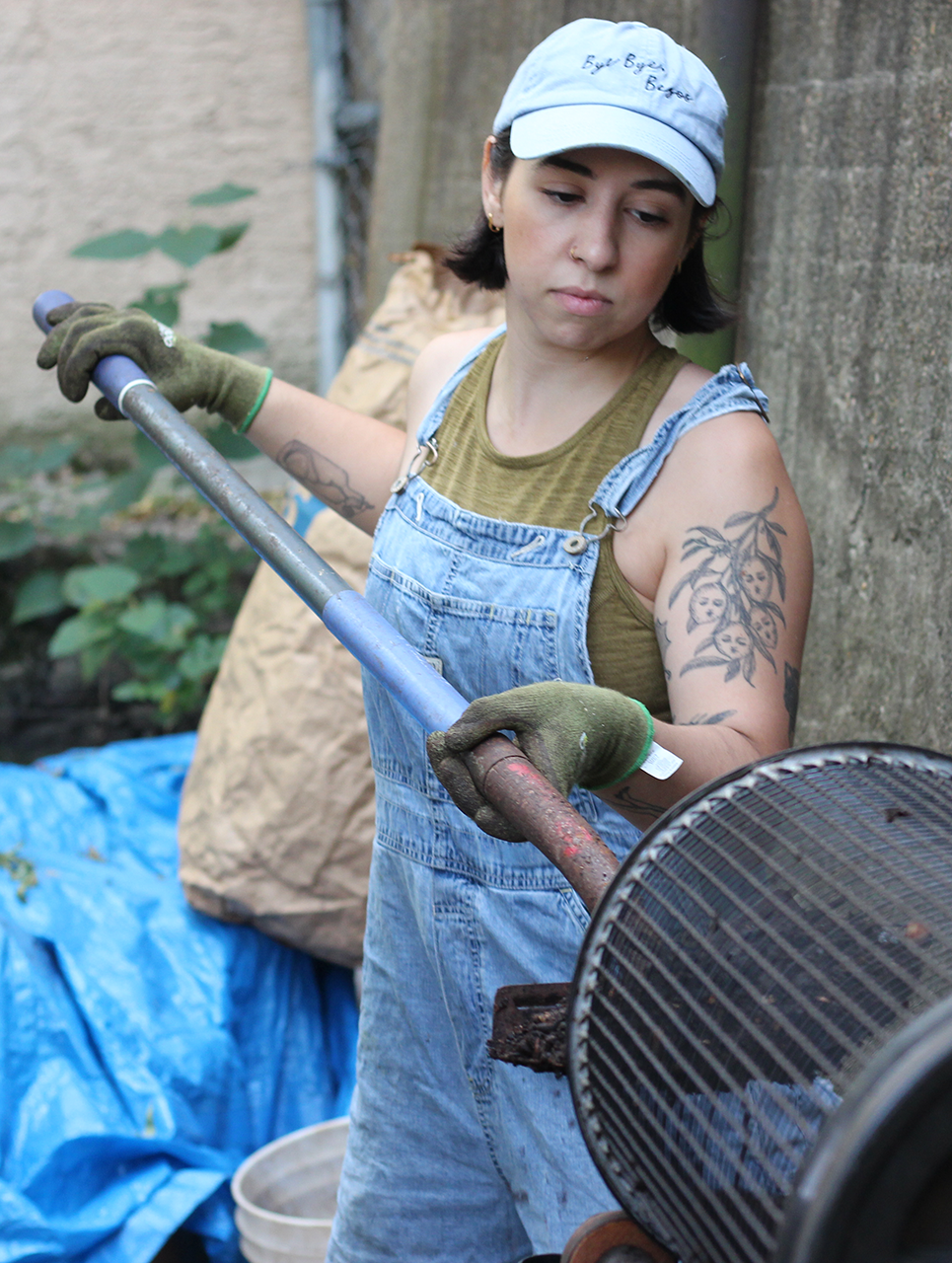Expanding electric vehicle infrastructure isn’t the only Philadelphia initiative that’s taking a hit from the Trump administration’s halt to federal funding, the ultimate ramifications of which are being worked out in courts across the nation. Key projects tackling climate change, public health and even the City’s program to eliminate traffic deaths are now in limbo, awaiting word on how to continue.
A restored tree canopy in Philadelphia would have sweeping benefits: more shade, lower heat indexes, improved air quality and beautified streets. A 2023 Tree Plan released by Philadelphia Parks & Recreation outlines a vision “to expand the city’s tree canopy to 30% in every neighborhood within 30 years,” Grid reported. This would be made possible by a $12 million United States Department of Agriculture (USDA) grant to a coalition of partners including the City, the Pennsylvania Horticultural Society (PHS) and the Public Health Management Corporation (PHMC).
A government grant tracking website shows that $121,343 of the obligated $12 million has moved to PHMC. But funds haven’t been transferred since December.
The City declined to comment on grant details. Sin Gogolak, vice president of brand and communications for PHS, says in a statement that the partners are determining how these federal decisions will ultimately impact them.
“At this juncture, the Philly Tree Plan is still progressing forward, and the coalition partners continue to work together to find and secure various avenues of funding and partnership to bring the plan to life over the next 10 years,” Gogolak says. “The USDA grant is but one piece of the total funding, as there are other sources that the coalition has secured and is continuing to work on.”
Another USDA grant, this one awarded to the PA Flax Project to reestablish the state’s fiber flax industry, also hasn’t seen money transferred since December, according to the same grant tracking website. Roughly $1.7 million is expected, and so far about $376,000 has been disbursed.
And a nearly $14 million grant awarded to the Schuylkill River Development Corporation (SRDC) and Philadelphia Department of Streets that would pay to close critical gaps in the Schuylkill River Trail (SRT) “is getting caught in the Trump crossfire,” an SRDC representative tells Grid.
The project would add two new segments — the Wissahickon Gateway Trail (2,000 feet) and the Passyunk Connection (4,500 feet) — to the SRT. These additions would allow pedestrians and cyclists to travel nearly 39 miles off-road and steer clear of the Vision Zero High Injury Network corridor of Main Street and Ridge Avenue in Northwest Philadelphia, according to the press release announcing the grant. The augmented trail would also provide users access to commercial and residential corridors and public transportation. The representative said they “are unsure how [Shapiro’s lawsuit results] will impact the trail.”
Fortunately, while some agencies have decided to shift focus onto non-federally funded projects, not all groups have been so severely impacted.
We’re really focused on doing as much as we can while we can to help people.”
— Adrienne Hollis, National Wildlife Federation
The Environmental Justice Thriving Communities Technical Assistance Centers (TCTACs) train underserved, overburdened communities in four areas and assist in applying for and managing grants. Overbrook Environmental Education Center is a Philadelphia-based nonprofit that is receiving financial support from the National Wildlife Federation (NWF) to support a TCTAC locally.
Adrienne Hollis, vice president of environmental justice, public jealth and community revitalization for the NWF, tells Grid that the TCTAC program has not received a stop work order — “so far, so good.”
“We’re really focused on doing as much as we can while we can to help people,” Hollis says, acknowledging that the situation could change swiftly.
Although federal funds that these groups might apply for have been placed on the chopping block, program participants are still receiving the assistance necessary to earn and maintain grants successfully once that pool of funding gets restored. Plus, those skills are “applicable across the board,” Hollis says. “The tools that they’ll be sharpening could be used for any application,” including for private funding. “It’s still going to benefit them,” she says.
This upskilling offers a glimmer of hope for environmentally focused groups since Trump repealed a Biden-era executive order that advanced the federal government’s consideration of environmental justice. Hollis says that move “has the potential to affect a lot of lives.”
“The potential ramifications are far-reaching. A lot of communities that need help need specific help and are depending on this funding. We’re still focused on assisting them as we move forward. I’m just not sure that the ramifications have all been considered,” she says. “Regardless, the fight continues.”



 This special section is a part of Every Voice, Every Vote, a collaborative project managed by The Lenfest Institute for Journalism. The William Penn Foundation provides lead support for Every Voice, Every Vote in 2024 and 2025 with additional funding from The Lenfest Institute for Journalism, Comcast NBC Universal, The John S. and James L. Knight Foundation, Henry L. Kimelman Family Foundation, Judy and Peter Leone, Arctos Foundation, Wyncote Foundation, 25th Century Foundation, Dolfinger-McMahon Foundation, and Philadelphia Health Partnership. To learn more about the project and view a full list of supporters, visit
This special section is a part of Every Voice, Every Vote, a collaborative project managed by The Lenfest Institute for Journalism. The William Penn Foundation provides lead support for Every Voice, Every Vote in 2024 and 2025 with additional funding from The Lenfest Institute for Journalism, Comcast NBC Universal, The John S. and James L. Knight Foundation, Henry L. Kimelman Family Foundation, Judy and Peter Leone, Arctos Foundation, Wyncote Foundation, 25th Century Foundation, Dolfinger-McMahon Foundation, and Philadelphia Health Partnership. To learn more about the project and view a full list of supporters, visit 





